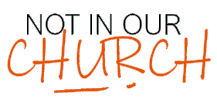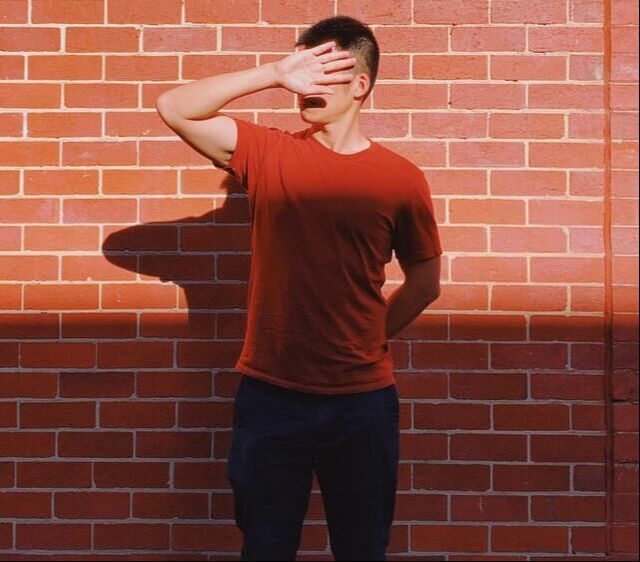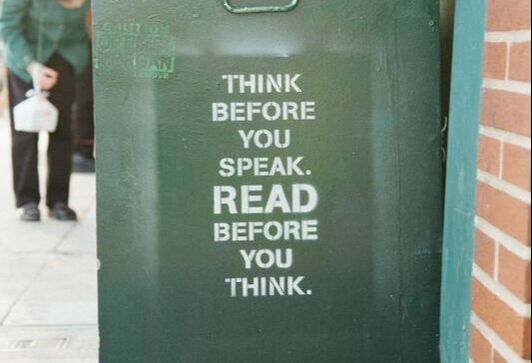 |
“The Temptation of St. Anthony,” Hieronymus Bosch (1450-1516). Fire threatens to rage over the landscape in a scene populated by strange and eerie creatures. Image courtesy of the Rijks Museum. |
Living in strange times
by Pando Populus | Jan. 21, 2024
We try to sit down with Pando’s founding Chair John Cobb as often as we can to talk about the big ideas related to creating a more sustainable world. This time we invited Mary Elizabeth Moore to the conversation. Held over Zoom, and edited for clarity and length, this discussion focuses on doing purposeful work in difficult times, and the philosophical assumptions it implies.
John Cobb has been called the most significant philosophical theologian of our time and is the leading authority on the philosopher Alfred North Whitehead. He is a member of the American Academy of Arts and Sciences and chair of Pando’s Board of Directors.
Mary Elizabeth Moore is Professor Emerita of Theology and Education and Dean Emerita of the School of Theology, Boston University. She is vice chair of the Cobb Institute Board of Directors, in Claremont, CA where she lives in retirement.
———————————-
Pando: If I had an artist’s gift, I’d paint our reality today like Hieronymus Bosch painted his five centuries ago, only more bizarre and twisted.
We live in frightening times. How should this affect the work in sustainability that we do? How can it not? At any rate, at what point is it only prudent to give up on change-making and hide under a rock?
I don’t want to sound unduly pessimistic, but who can read the newspaper without asking these questions?
John Cobb: Every year as things get worse, more people say we must act. At this moment, I think our responsibility is to fulfill our calling to do what we feel is right.
For example, last year, I felt called to do something about US-China relations. I believe that there is no possibility of making the changes that need to be made in the human relationship to the planet, physical planet, unless the United States and China work together. It’s about the cooperation of the two major countries.
Mary Elizabeth, your thoughts?
Mary Elizabeth Moore: I appreciate the way John approaches the question through the China-U.S. relations lens and the larger geopolitical situation. For many, however, the demands for survival are so immediate that looking at the large geopolitical picture is challenging and can lead downhill to despair that undercuts any kind of movement toward ecological justice.
We hear the term “ecological justice” a lot, but what do you mean by it?
I’m not only talking about justice for poor communities that are affected by ecological damage. I’m also talking about justice for the trees and the rivers and the rocks. I think to be drawn into that, we need a radical cultural change. My own attention has been focused on cultural change of this kind.
I believe that if we’re going to give our best to reversing and repairing and protecting what’s left, we need to work in several directions at one time and I think what John’s proposing is a very important direction.
Where do you put your own energies with an ecological justice focus in mind?
I have cast my energies into working on smaller projects and cultural change in local communities – taking that route for larger and global impact.
Describing the beginnings of the environmental movement, Vandana Shiva wrote that when small communities around the world started to take note of and discover other small communities working towards similar goals around the globe, the environmental movement really took off.
Local work can seem small potatoes. But the idea of communities of communities linking together can create serious impact.
Yes, and this is why I find the work Pando does to be so extremely hopeful. It may not be changing the world in an instant, but it does spread ideas and projects which are networked together and have the effect of building a new kind of culture. I’m convinced that that is one very important way to go.
Do you think that the local approach to change-making has had much of an effect on how this kind of work is done?
Yes, and we can see this even in the work of the United Nations. Instead of the United Nations taking their own experts around, as they used to do so much of, they are beginning to bring the local experts together to present to one another. And then they work on problems together. And to me, that is an extremely important reversal of culture. Expertise is being drawn from people who are passionate and are working on ecological protection and change and reparation in their own communities. And they’re learning from one another how to do it, and so the work they’re doing is spreading. It’s very effective.
I think that a big part of this approach is that it’s only in local settings that we learn to listen and observe and touch and feel all of creation. So it’s not just learning from diverse human communities what we need to do, but it’s also learning from the trees and the ants and the other animals and the ways they work together, collaborate.
But, if we ignore a more global approach, can’t we get lost in just caring for our own survival? Surely, even at a local level, we need to maintain a global outlook.
I think it’s too easy to separate the local and global – even in drawing from the wisdom of plants and animals.
I know this is a little far out, but take in the fact that ants are the largest species in the world. Collectively, the weight of ants is more than half of the weight of all other animals, including humans, put together. And, they’re spread all over the world.
I use that as an example because to learn from ants is to attend to the global phenomenon of ants, not just the local. Everything, including what’s done locally, is affected by policies that are not only local but global.
My concern is to develop and to learn from the diverse local communities and aspects of creation in order to develop policies that are protective and reparative as much as possible.
And then where the, where things fail at the policy level, and the threats just seem insurmountable, then I think you’re also saying that a local focus at least forms a foundation for resilience – community resilience – to some extent, right?
And it provides a site for mourning. Mourning is a very important part of what needs to happen. If we don’t feel the destruction, we’re not going to be inspired to do anything about it. It’s important.
John, let’s get you back in on this. There was an issue brought up by Alfred North Whitehead at the Apostles club when he was a student at Cambridge in the 19th century. The club was for intellectual discussion, with different topics each week. The topic for one week was, “Shall we beat our heads against brick walls?” and Whitehead answered yes. And then defended it.
Whenever I think of the work any of us are doing on these issues, I think of beating our heads against brick walls. It can feel that way.
But are we really called to beat our heads against brick walls? If so, how do you defend it to everyone who doesn’t want to end up with a very sore head?
John Cobb: Living in history and taking a moral stand inevitably means you’re going to wind up with a sore head one way or another. What that means is that you have to ground a notion of going up against great odds with some sense that in doing so, you’re on the side of what’s right and good and beautiful – and that those values are actually meaningful and real. It’s hard to maintain the courage you need without some sense that the universe is on your side – that “the arc of the moral universe is long but it bends toward justice,” as the Rev. Martin Luther King put it.
I think that the modernization of the university is one of the major causes of our having lost the ability to think about important matters and ground them. The university holds the ideal of value-free education, but in the absence of values, money fills the void – and education becomes just a tool to make more money. Where that’s the case, it becomes divorced from its true mission – which is serving the common good and trying to do something about the problems that loom on the horizon.
You make this critique as a person whose life was in the university, as a professor. This is true for both of you, of course.
When I single out the university for criticism I am really trying to focus on some key issues that might make a difference quickly because I don’t think we have much time,historically speaking. And on a positive note, I think that the universities are more open to being transformed than they have been for a long, long time.
If the university system were to collectively decide that its job is to save the world, it can go beyond what any other institution of civil society has done. If the enormous resources of the university were rightly used, it could make a rather quick difference.
So that if we have five or ten years before we have to say it really is too late on many important fronts, the transformation of the university may be what we should be working on.
Mary Elizabeth, I’m sure you’d love to break in here.
As John knows, my views of the university are different from his. I have the same ideals, but I see much more of those ideals being embodied in universities than he does.
I have been in higher education for 40 years now and in actual universities for 20. I see what universities are doing that matches what John is saying. And not just in the last two or three years, but I’ve seen it for the 20 years that I’ve been in universities, and before that as well. I’ve had very few colleagues who value learning just for the sake of learning or as its own endpoint, but see higher education as a powerful engine for good.
I would love to go a step further and say, what are the metaphysical assumptions that really are necessary for us to make in order to, as Whitehead put it, continue to hit our heads against brick walls in an effort to bring about change?
I am fearful that we’re in a culture in which even talking about those metaphysical assumptions is so out of fashion. But we’re living in a time when, in fact, without making those assumptions and without discussing them explicitly, we’re really handicapped in our ability to respond to the historical situation we’re in.
I’m curious how either one of you would both respond to that.
The modern dominant metaphysics is a major obstacle. Even so, nobody believes it. I haven’t found anybody who really thinks they are robots.
You’re talking about a materialistic view of the universe where the purposes and meanings we experience and the values we treasure aren’t given the status as being really real — but something we add onto reality, like some sort of decoration to an otherwise material world. But if these things aren’t really real, then it’s hard to think of ourselves as being more than an assemblage of nuts and bolts — or zombies or robots, as you put it, at the end of the day.
But unfortunately, that’s what we teach for the most part.
You’re referencing the fact that metaphysics has no place generally speaking in a discussion of physics at the university.
And physics holds the status as defining what’s most real among academic disciplines.
One approach is to confront the matter head-on, as philosophy might do. Or…
If we can talk about the world as one in a crisis that human beings have contributed to making happen, and then focus our attention on what needs to be done, I think we still have hope. And, I am seeing this hope in Pando and beyond.
How so?
Well, the American Academy of Arts and Sciences has recognized that, because climate change is so urgent, we should no longer be neutral when discussing it.
This is a very prestigious academic association, of which you’re a member, saying that education should not be value-free when it comes to the climate.
I also was very interested when the announcement was made of the new president of Columbia University. It was said she had just written a book about values. I have no idea what’s in that book. But the simple fact of it said to me, the climate in higher education is changing. Writing a book about values is now a good thing for an academician to do. Even for getting a good job. I was writing on ethics at a time when doing so kept you at the margins.
So, I’m really hopeful that we can say we made a mistake in thinking that reason – which is simply the accumulation of facts and arguments from facts about facts – could be separated from questions of purpose, value, and life.
Education should grow out of human experience, and experience doesn’t separate facts from values but embraces the whole of life.
Mary Elizabeth?
I would add that the ability to have those conversations has been fueled by years, even decades, of action in that direction. And, I think the kinds of projects that Pando does, the kinds of projects that local communities do – these are actions that often are what open people to talking about the issues in a larger form and writing about values and higher education and so forth.
In the ‘90s, Jay Lifton discovered that the people who were least depressed and least ready to give up on peace were those who were active in the peace movement in some form. And some research has taken place over the years since then has reinforced what Lifton discovered. And that is the kind of action that needs to happen in order for people to have avenues to express their passions and their concerns, and also avenues for people to be open to and explore the metaphysical questions.
I love the connection between action and hope. But Mary Elizabeth, how do you ultimately ground your hope? Action is presumably part of that, but what metaphysical grounding keeps you from just, you know, giving up?
Mary Elizabeth: First, I understand hope is a choice, not an attitude. Optimism is an attitude, but hope is a decision to look for the possibilities.
I’m very much influenced by Alfred North Whitehead and the understanding that the world is always in relationship and is always in process. It is always moving so that no moment is the endpoint, and we’re never going to reach an endpoint. But every moment contributes to the potential of the next moments that are coming, and that potential is so important for the salvation of the world.
You cannot guarantee what the future is going to be. But you can contribute to the potential for flourishing, the potential for justice, the potential for the well-being of all creation.
And I think that is our duty as beings, not just as human beings. Animals and plants have their duties that come out of their natural ways of being.
Each of us doing our part to build potential, where we can. It’s a beautiful articulation you’ve offered.
I will add one other thing. The theologians who’ve written on hope have almost always written on that subject out of dire circumstances. Out of having been in life and death circumstances where not only would their lives personally be threatened, but they saw the whole world or the whole culture being threatened. And the urgency that that brought led them to seek hope.
Jurgen Moltmann is an example. But there are so many examples of this. Hope has been a major theme among Latin American liberation theologians. It’s been a major theme among many feminist, womanist, Mujerista, theologians and so forth. Because it’s a necessity in order to seek ways that open possibilities for something better.
John, you’re a philosopher and philosophical theologian, how do you ground the work you do?
John Cobb: I will talk specifically about God.
I think that if reality as a whole has no values, no preferences, and if nothing contributes intentionally to the survival of valuable things or cares about the increase of values and so forth and so on, then I think it is very difficult to find grounds for hope or to ground any of the work we aim to do.
But if we believe that there is that which favors values – and I think there’s all kinds of scientific evidence actually today that the universe favors life – I think that gives some assurance that even if we humans have a very hard time imagining how we can get from where we are to where we need to be, that there is something else working in that direction.
If we can really open ourselves to its guidance, we have no way of knowing what’s possible. So to me, that’s very important.
To the contrary, I think that value-free thinking of the kind that so much of education has tried to encourage, accompanied by the notion that everything that happens is predetermined in a material world, is not a context in which hope can emerge or be sustained for long.
A final question for you both, given all you know about the state of the world and what you’ve said above: if you were the parent of a young child working for the common good in a major metropolitan area, or would you pick up and flee – to some nice, quiet place? Or would you stay put? If the world were going to hell anyway, why not try to carve out a pleasant niche someplace where it’s not quite as bad?
I haven’t given that any thought. I think I’d just stay with the world as it went to hell.
If there are possibilities of helping a city become more self-sufficient, I think that’s very important. And smaller cities probably have a better shot at that, than the bigger ones.
Frankly, even though I talk about surviving a lot…
Planetary survival, civilizational survival, species…
…yes, at this juncture in my life, I personally have no interest in surviving. I’m ready to go.
Mary Elizabeth, how do you respond?
I think it’s a wonderful question – do we head for the hills or do we stay and do the work we feel called to do, with hope? And I think it begs another question, Why? Why would you head for the hills or why would you stay where you are if you’re in a city? Or why would you move to a big city if you’re not already there? I think the why is the bottom line question, and you framed it originally in terms of rearing children.
I think that a family might ask, in what environment can we contribute the most and can we help our children grow in the most thoughtful and full ways to love the Earth and all the peoples and creatures on it? And, I think you can do that in the middle of a city, and you can do it in a rural area, and you can abuse it in either. I think it’s really a matter of calling and preferences, but the real question is, how can we live in this place in a way that contributes to flourishing?
I have friends who, when they retired, moved and a couple who before they retired, moved into a rural area and are developing the capacity to live off the grid. Some have already accomplished that and I completely admire that. It hasn’t been my calling but I think it’s beautiful when people do that. I also see how people live in cities, crowded cities, in ways that are really caring for the earth and other peoples and are really making a difference in the world.
And I think maybe the best example is the indigenous people who choose to live in their tribal communities, or their nation’s communities, because that keeps them in touch with their roots, their traditions, their ways of life that are more conducive to the survival and thriving of the planet.
And I think those are all good decisions and different people will make different ones. If it were not for those people, the indigenous people who make those choices, we would be impoverished as a nation in terms of thinking ecologically, because of what comes out of those communities. So for those people who’ve made that choice, that is just a huge gift to the rest of us.
I would hope that people who make other choices are making a similar kind of gift out of their own choices, because cities can be extraordinarily humane. And they can also be extraordinarily destructive. They’re usually a mix of everything. But you can make a good life for the planet and the beings on it in the middle of a very busy city, as well as in the countryside.
It was truly a pleasure. Thank you both.
See further - Pando Sustainability Awards - link here
More articles by Pando - link here





